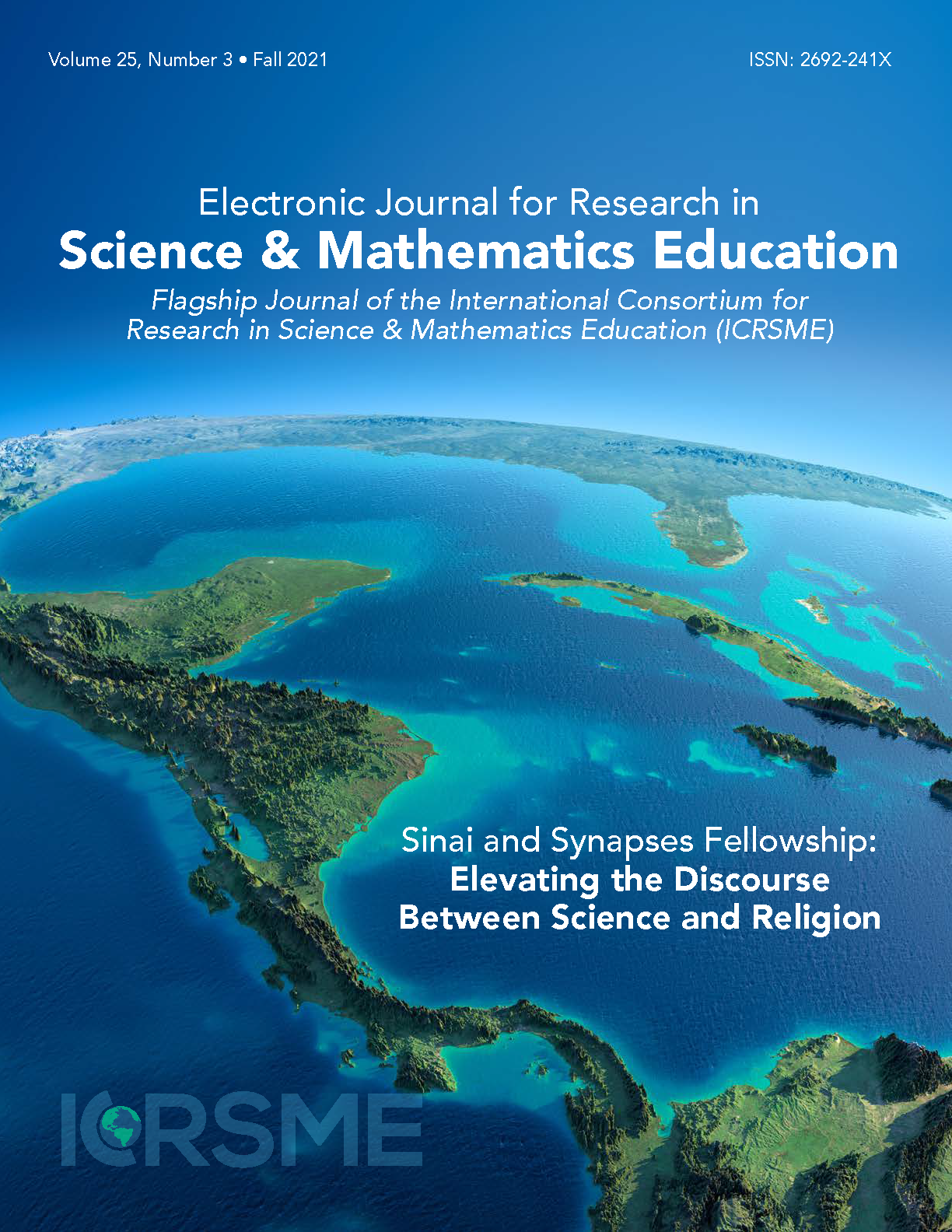A Unique Way of Knowing Children's Conceptions of the Nature of Science and its Relationship to Religion
Main Article Content
Abstract
There is an increasingly rich body of developmental research on children’s understanding of science and religion as ways of knowing. In this manuscript, I put this scholarship in conversation with applied research on science education and consider the potential implications for exposing children to instruction that addresses the relationship between science and religion. I begin by outlining three bodies of literature that can inform our understanding of how learners – especially young learners – make sense of potentially conflicting explanatory frameworks from the domains of science and religion: 1) the literature on testimony, which provides insight into how children learn about science and religion; 2) the literature on epistemological reasoning, which examines how learners think knowledge is conceptualized in different ways of knowing (in this case, science and religion); and 3) the bodies of literature on situated cognition and collateral learning, which posit that the experience of actively grappling with conflicting testimony is emotionally charged and connected to issues of
culture and identity. After synthesizing the literature in these three areas, I turn to the science education literature to consider the implications for classroom culture and pedagogy, where I argue that the reviewed research supports the practice of making room for ideas that sit outside the traditional bounds of science as a powerful pedagogical tool. Specifically, I posit that students’ questions and ideas about concepts that fall outside these typical domain boundaries can be leveraged by science teachers for deeper understanding – not just about the intended scientific content goals, but also about concepts such as disciplinarity and perspective taking – and for a more inclusive classroom environment that invites all students to engage in scientific thinking, regardless of their cultural or religious backgrounds.
Article Details
© 2025 Electronic Journal for Research in Science & Mathematics Education (EJRSME)
